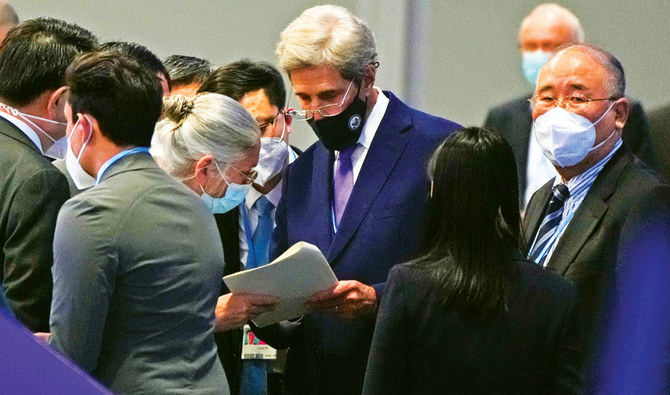GLASGOW: After extending negotiations for an extra day, leaders at the UN summit in Glasgow offered a new draft agreement that seeks to bring nearly 200 countries together in tackling climate change.
Many countries expressed their dissatisfaction over the resolutions related to fossil fuels, carbon markets and aid for vulnerable countries.
Alok Sharma, the conference chairman, urged the almost 200 national delegations present in Glasgow to accept a deal that seeks to balance the demands of vulnerable nations, big industrial powers, and those whose consumption or exports of fossil fuels are vital to their economic development.
“Please don’t ask yourself what more you can seek but ask instead what is enough,” he told them. “Is this package balanced? Does it provide enough for all of us?”
“Most importantly — please ask yourselves whether ultimately these texts deliver for all our people and our planet.”
A draft deal circulated early on Saturday in effect acknowledged that existing commitments to cut emissions of planet-heating greenhouse gases are nowhere near enough, and asked nations to set tougher climate pledges next year, rather than every five years, as they are currently required to do.
In a public check-in round with key delegations, there was encouragement for Sharma from China. “We noted that there are still differences on some issues and currently this text is by no means perfect, but we have no intention to open the text again,” Chinese negotiator Zhao Yingmin told the conference hall.
Scientists say that to go beyond a rise of 1.5 C would unleash extreme sea level rise and catastrophes including crippling droughts, monstrous storms and wildfires far worse than those the world is already suffering.
But national pledges made so far to cut greenhouse emissions — mostly carbon dioxide from burning coal, oil and gas — would only cap the average global temperature rise at 2.4 Celsius.
Previous UN climate conferences have all failed to single out fossil fuels for their harm to the climate. Last-minute wrangling over commitments to phase out coal power was holding up a deal at the time of going to press.






















